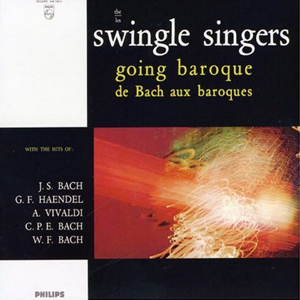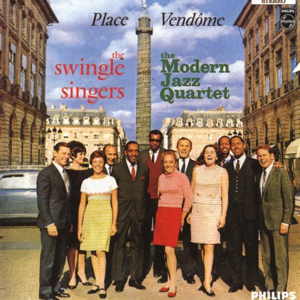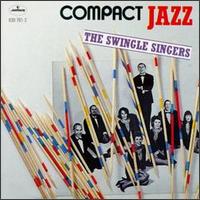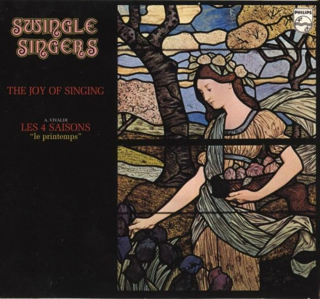
The Swingles are an a cappella vocal group. The Swingle Singers were originally formed in 1962 in Paris under the leadership of Ward Swingle. In 1973, Swingle disbanded the French group, and formed an English group known initially as Swingle II and later as the New Swingle Singers, before settling on the Swingles name.

Pierre Michelot was a French jazz double bass player and arranger.

Daniel Humair is a Swiss drummer, composer, and painter.
The Paris-based Swingle Singers recorded regularly for Philips in the 1960s and early 1970s and the successor London-based group continued to record, for Columbia / CBS, Virgin Classics and other record labels from 1974 to the present.

Going Baroque is the second album released by the Paris-based Swingle Singers. The album was a 1964 Grammy award winner for "Best Performance by a Chorus."

Jazz Sébastien Bach is the debut album released by the Paris-based Swingle Singers. The album was a 1964 Grammy award winner for "Best Performance by a Chorus" and the group also won the 1964 Grammy award for "Best New Artist". It peaked at No. 16 on the Billboard Top LPs chart during the week of 21 December 1963.

Getting Romantic is the fourth album released by The Swingle Singers.

Anyone for Mozart? is the third album released by the Swingle Singers. The album was a 1965 Grammy award winner for "Best Performance by a Chorus."

Anyone for Mozart, Bach, Handel, Vivaldi? is a CD compilation re-issue of music by the Swingle Singers. It combines tracks from two previous LP releases, Going Baroque and Swinging Mozart.

Back to Bach is a 1968 album released by the Paris-based Swingle Singers.

Jazz Sebastian Bach is a compilation album/re-issue of music by the Paris-based Swingle Singers. It combines the tracks from two previous releases:

Rococo Á Go Go is the fifth album released by the Swingle Singers. The album was nominated for a 1966 Grammy award.

Place Vendôme is an album released by the Swingle Singers performing with the Modern Jazz Quartet. This album as Encounter was a 1968 Grammy award nominee for Best Performance By A Chorus.

Spanish Masters is the seventh album released by the Paris-based Swingle Singers. All tracks from this album are also included on the 11 disk Philips boxed set, Swingle Singers.

Compact Jazz: The Swingle Singers is a compilation album of previously released tracks from 3 Philips Swingle Singers recordings: Place Vendôme, Getting Romantic and Spanish Masters.

Christmastime is an album of Christmas songs released by the Swingle Singers in 1968 on the Philips Records label. It was reissued with the title Christmas Album (1980). All tracks from this album are also included on the 11 disk Philips boxed set, Swingle Singers.

American Look is a 1969 album by the Swingle Singers on the Philips Records label. All tracks from this album are also included on the 11 disk Philips boxed set, Swingle Singers.

The Joy of Singing, a.k.a.Les 4 Saisons is a 1972 album by the Swingle Singers on the Philips Records label. All tracks from this album are also included on the 11 disk Philips boxed set, Swingle Singers.

Bitter Ending is a recording of a work for eight voices composed by Andre Hodeir as commissioned by Ward Swingle. The work is performed by the Swingle Singers with a jazz quintet. This was the last work by Hodeir and is inspired by James Joyce's Finnegans Wake


















